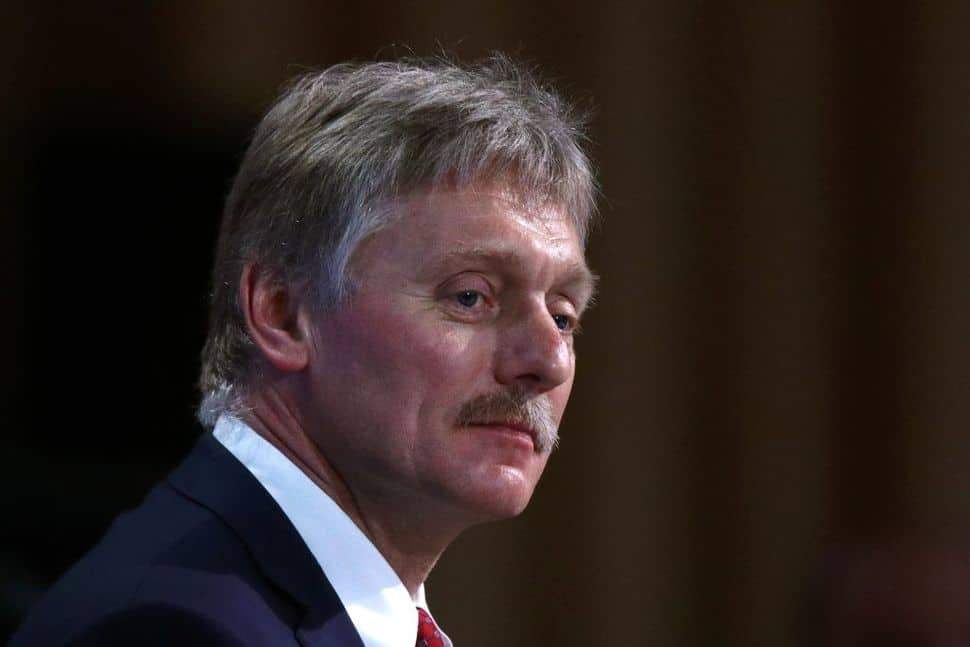Russia Warns Against U.S. Retaliation for SolarWinds Amid Fears of Cyberwar

RUSSIA ON TUESDAY warned against pending action that U.S. officials say will take place in retaliation for the massive and ongoing hack into federal computer servers despite the potential for a devastating cyberwar.
"This is nothing more than international cybercrime," Dmitry Peskov, a spokesman for the Kremlin and Russian President Vladimir Putin, told reporters Tuesday morning, according to a translation of his remarks.
He spoke in response to a series of claims from U.S. officials, including Secretary of State Antony Blinken and FBI Director Christopher Wray, that they are considering harsh punishments on Russia for the attack, including overt sanctions and some form of covert salvos in the cyber realm. Wray hinted at the action in testimony before Congress this month, saying the U.S. was preparing cyber "joint sequenced operations."
Peskov's comments serve as the latest denial from Moscow of anything to do with the alarming intrusion into public and private computer servers that reportedly began in 2019, the scope of which U.S. security officials are still grappling with. The sweeping hack first came to public attention late last year, and U.S. intelligence agencies in January concluded that Russia was the likely culprit.
The New York Times has reported on some of the specific covert measures the U.S. is currently preparing to Russian networks, which Peskov on Tuesday called "alarming information." And he repeated denials of any complicity from Moscow, saying "the Russian state has never had and has nothing to do" with "such cybercrime and cyber terrorism."
Many analysts support the need for some sort of retaliation to deter Russia from future action, while also acknowledging that the attack exposed gaping holes in the U.S. system for protecting its cyber infrastructure, which controls banks, electricity grids and airports.
However, some have already pointed out that the SolarWinds attack could have been much worse and say the Russian response to new U.S. action may be if the Biden administration does not proceed carefully.
"Russian authorities are likely to increase harassment of diplomats and restrict their activities, including possible expulsions. They may also seek to take legal action against local entities that have Western links by using a recently enhanced 'foreign agents' law to impose fines and curtail their operations," private intelligence firm Stratfor wrote in a recent analysis note.
It notes that Russia would likely impose new sanctions or open investigations into U.S. businesses as a way to interfere in their local operations.
"Most aggressively, the Kremlin could make public and/or covert moves in the security sphere. The Russian government could endorse cyber operations targeting Western companies not merely to collect information, but to infect and damage their networks," according to Stratfor. "Of most concern, but also the least likely at the moment, Russia could step up pressure in military conflict zones, such as increasing support for separatists in eastern Ukraine."
Photo: “This is nothing more than international cybercrime,” Dmitry Peskov, a spokesman for the Kremlin and Russian President Vladimir Putin, told reporters Tuesday morning.(SERGEI BOBYLEV/TASS/GETTY IMAGES)
Link: Russia Warns Against U.S. Retaliation for SolarWinds Amid Fears of Cyberwar | World Report | US News




